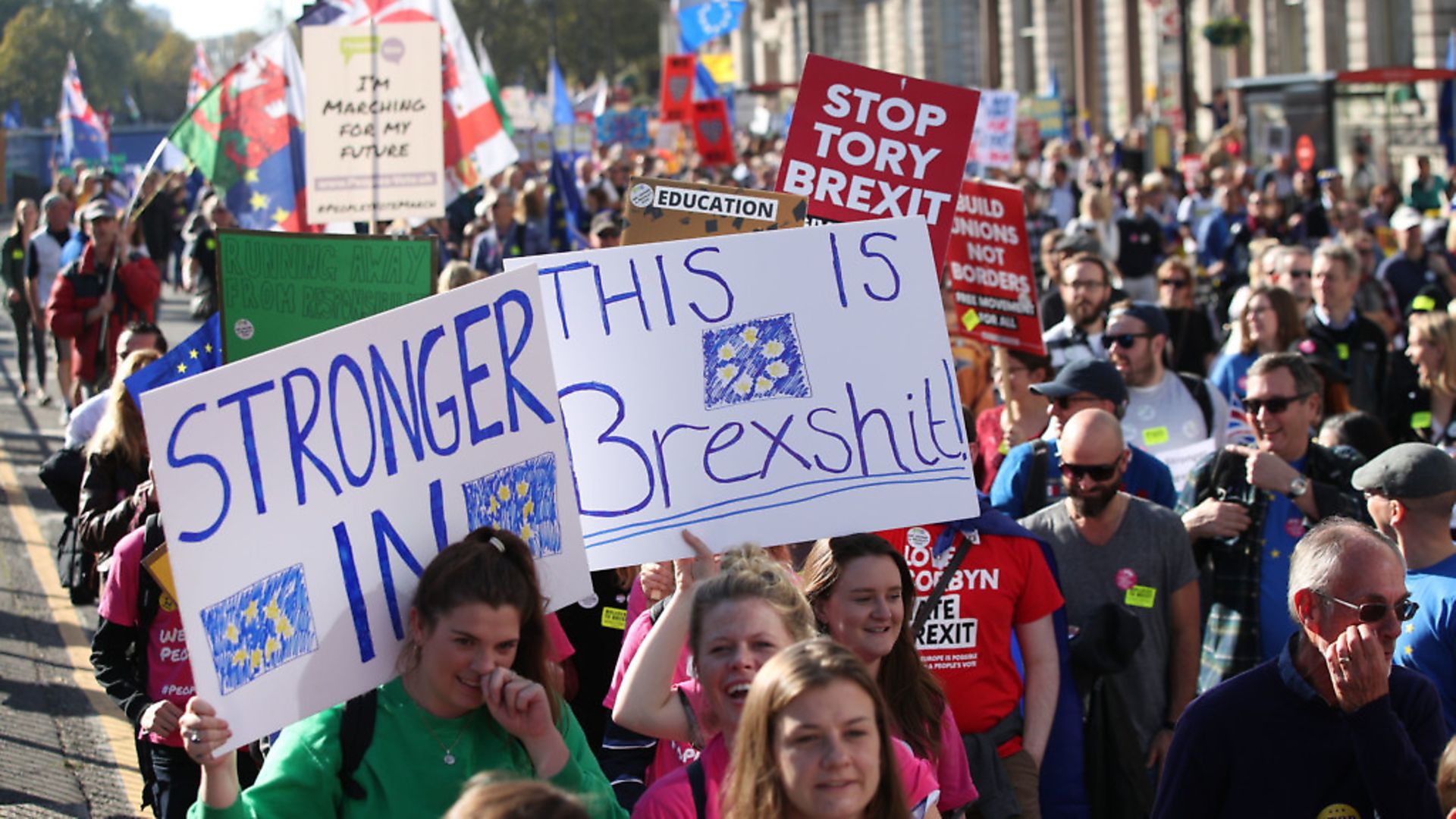
Without a swift shift of focus, Remain could lose a second referendum
On Newsnight last Friday I watched political journalist Jenni Russell telling Alastair Campbell, editor-at-large of this newspaper, to shut up. During a heated debate, Russell was trying to make the point that Remainers who continue to engage in predictions of economic doom and gloom have failed to learn the lessons of their defeat in the 2016 referendum.
‘When I talk to people who say they voted Leave, they talk in completely different terms,’ she said. ‘They talk about sovereignty, they talk about community, they talk about independence.’ Campbell kept interrupting to tell Russell she was talking ‘nonsense’ and painting a caricature.
She wasn’t. Russell was absolutely right. Remain lost because it spoke the language of economists and politicians. It didn’t speak to or about people. And it still isn’t.
By contrast, the dishonest populists leading the Leave campaign seemed instinctively to understand that this referendum was never about facts and economic downturns and the World Bank’s dire warnings. It was about values. It was about how people felt. It was about good old Nigel, with his surgically attached pint, giving us the old wink and nudge about salt-of-the-earth Brits sticking one to Johnny Foreigner.
Endless headlines about plunging GDP never stood a chance here. Fact-checking the wilder claims of the Leave camp was, and is, not enough. Technical explanations about how the far-away European council, parliament and commission work in a perfectly democratic way (god, you’re such a thicky-thicko implied, if not vocalised) are no bulwark against the invocation of three lions on a shirt and taking back control.
What Remain should have done then – and should be doing now – is making the case for what the EU has done for us. What the EU has done for you and me, personally. It should have been – and should be – using people’s personal stories. Stories about how the EU helped us live and love across borders. How it has stood up for ordinary working people against the worst instincts of free market capitalism. How it has invested in the communities that Westminster forgot.
We should have spoken about the power of collaboration across national borders, and what that has meant to individual Brits. What that has meant to mothers like Emma Hallam, whose ten-year old son, Alex, has Duchenne muscular dystrophy, a rare life-limiting condition affecting mainly boys.
As with other rare diseases, the collaborative nature of the EU has been absolutely crucial for Alex to get the treatment he needs. Being able to run clinical trials across the entire bloc makes it far more likely that there will be enough patients to take part – for many rare diseases, there simply aren’t enough patients in a single country to run a trial of significance. So they don’t get done. Leaving the EU means leaving this kind of collaboration behind. Is an abstract sense of sovereignty worth it for Alex and other children like him?
Collaboration isn’t just about clinical trials. As a member of the EU we have access to all sorts of world-leading databases – databases we have played a role in developing and from which we have benefited enormously.
REACH, the EU’s hazardous chemicals database, covers every single substance placed and used in Europe in quantities over one tonne. It is the most sophisticated system in the world and it is why EU workers and consumers are far less likely than Americans to be exposed to carcinogens in their daily lives. In cosmetics, in cleaning products, in plastics, in just about any household item you care to imagine.
The EU’s crime-fighting database, which is used by police across Europe to search for terrorist suspects and missing people was hailed in 2015 by James Brokenshire (at the time a Home Office minister) as ‘another vital weapon in the fight against global crime and terrorism’.
These are the kinds of answers we need to give to people who are concerned about their communities. These are the kinds of answers we need to give to people who are concerned about sovereignty and independence. We have worked together, as a team, across borders, and we have been healthier for it. We’ve been safer for it. We’ve achieved so much, together.
A People’s Vote – the chances of which are rising by the hour – is an amazing opportunity for those of us who still think 2016 was a huge mistake. But unless Remain changes its tune – and fast – the people may well not give us the answer we want.
It’s time to start paying attention to the ‘people’ part of the vote we’re working for. We must not squander this chance to get it right.









